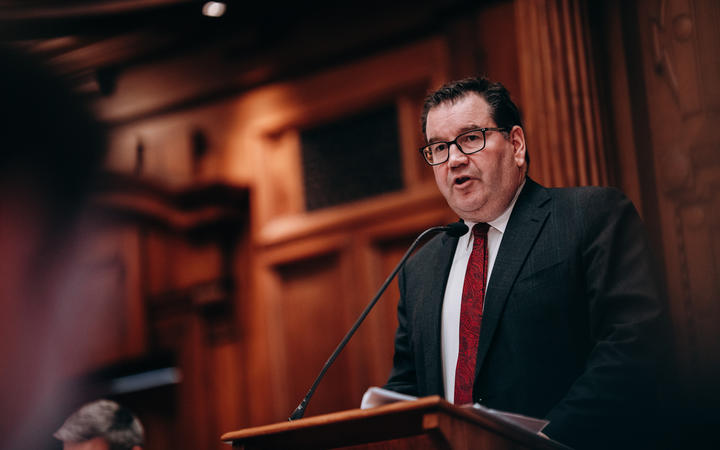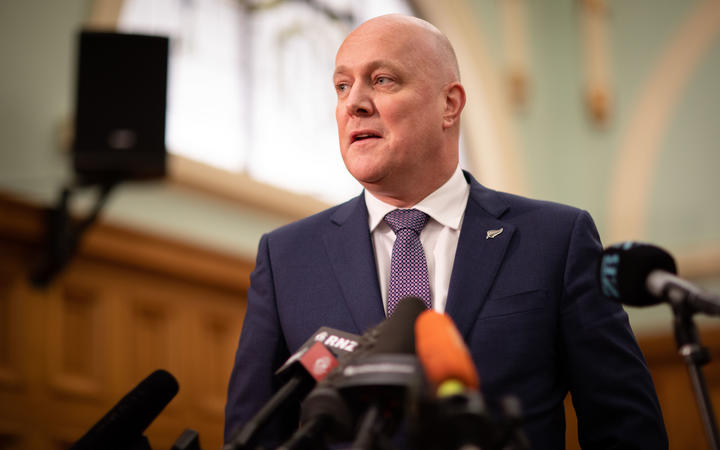Opposition parties are ramping up efforts to pin rising inflation on government spending as much as global factors after record annual inflation of almost 7 percent.
But Prime Minister Jacinda Ardern says other countries are also experience high rates and it was very much a global issue.
Latest statistics show a 6.9 percent increase in the consumer price index in New Zealand for the March quarter - the highest annual increase in 30 years.

The Prime Minister made the comments on her first day in Japan where she is leading a trade delegation.
"We can see around the world that other countries are experiencing this exact same issue," she told media this afternoon.
"It's impacting everyone. The question for us is: What can we do to ease that pressure?"
Ardern said the fuel excise cuts and public transport subsidies were among steps already taken to address inflation in New Zealand.
She was grateful to be able to visit Japan, saying trip was also a reminder of the Covid-19 pandemic's ongoing disruption of global travel.
"The borders here in Japan are not generally open, in terms of tourism coming and going."
It was important for the Government to support and promote New Zealand's major exporters on trips such as this one, she said.
Earlier, Finance Minister Grant Robertson pointed to global issues, such as the war in Ukraine and disrupted shipping and supply lines because of Covid-19 as the main factors in rising inflation.
"These are challenging times for the global economy with significant increases in food and fuel prices hitting all nations," Robertson said.
He noted inflation was at a 40-year-high of 8.5 percent in the United States and a 30-year high of 7 percent in Britain.

"Chinese ports have been shut for long periods, adding to supply chain disruptions. New Zealand cannot be immune to these challenges and the Government can't control the price of food or petrol," Robertson said.
There were no "silver bullets" for dealing with the current inflation situation, he said, noting that the Reserve Bank was tasked with restricting inflation to 1 to 3 percent.
"But the reality is that for many families the pressure from these high prices are real. We are well positioned to respond to this challenge."
Robertson said unemployment was at a record low, exports were up and the economy was growing.
However, National Party leader Christopher Luxon said Robertson had to do what he could to address the domestic pressures on inflation.
"He must take responsibility for presenting a sensible plan to help combat inflation pressures - reducing costs, removing bottlenecks and ensuring value for taxpayers' money.
"Instead, at a time when we need careful economic management and spending discipline, he seems intent on pushing ahead with a record $6 billion increase in annual spending in next month's Budget."
Luxon said Government spending was clearly a factor, pointing to Reserve Bank Adrian Orr recent comments on the general impact of government spending on efforts to control inflation.

Act Party leader David Seymour said the increase showed 2022 was the "year of the hangover" after Covid-19.
He also pointed to the increase in government spending and the $6b allocated for new spending in the upcoming Budget.
"Today's inflation figures are the direct result of Labour's addiction to borrowing and spending and Kiwi families are paying an almighty price," Seymour said.
"The Government's refusal to take responsibility is the equivalent of it giving the middle finger to middle New Zealand."
However, the Green Party's finance spokeswoman Julie Ann Genter urged the Government not to buckle to the calls of National and Act to cut taxes or cut government spending, and instead give more support to those on low incomes.
"High inflation is not experienced equally, and for people on the lowest incomes this means struggling to pay the rent and put food on the table," Genter said.
Seymour said help could be given to New Zealanders by tax cuts and pruning Government spending.
He released new policy to shrink the public service back to 2017 levels after a ballooning during Covid-19. That would include a stocktake of which Government departments were still necessary.
"If businesses don't deliver, they go. Why should a government department be any different?
"How many zombie departments and bureaucrats does this country have? People who just carry on collecting a pay cheque. Why do we put up with the idea that government can get bigger, but it can never get smaller?
He said Labour had added 13,845 full-time equivalent workers at an average salary of $87,600 since 2017: "That's an extra $1.21 billion in wages alone."
The Greens proposed lifting benefits and Working for Families, as well as rent controls, free public transport and more action on supermarket prices.
The Government has made some moves on inflation – including cutting petrol taxes and road user charges for three months – but has pointed to its increase in entitlements and benefits in its April 1 families package changes as its key move.











